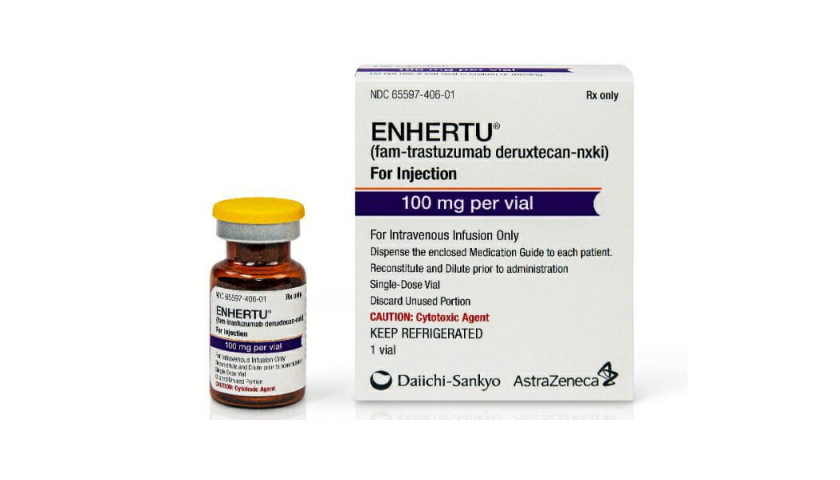EMA starts review of Enhertu for HER2+ gastric cancer

The EMA has started its review of AstraZeneca and Daiichi Sankyo's Enhertu for a second indication, as a second-line treatment for HER2-positive gastric cancer.
If approved the new indication for antibody-drug conjugate Enhertu (trastuzumab deruxtecan) will add to its first EU approval in advanced HER2-positive breast cancer after two or more HER2-targeted therapies.
Around one in five gastric cancers are HER2-positive, opening up a new market for AZ and Daiichi Sankyo, which have been collaborating on Enhertu since signing a multi-billion partnership for the drug in 2019.
Gastric cancer is associated with a poor prognosis, particularly in the advanced stages of the disease, with only 5% to 10% of metastatic patients surviving five years.
HER2-positive gastric cancer is generally treated first with chemotherapy plus Roche's Herceptin (trastuzumab) or a biosimilar in Europe, but treatment options are few if the disease progresses, according to Daiichi Sankyo's head of oncology R&D Gilles Gallant.
Enhertu "offers the potential to provide an important new treatment option to patients with locally advanced or metastatic HER2-positive gastric or [gastroesophageal junction] adenocarcinoma who have received a prior anti-HER2-based regimen," he added.
Roche's rival HER2-targeting ADC Kadcyla (trastuzumab emtansine) was unable to show a clear benefit in these patients, and in many regions in the world there are no additional HER2 directed medicines available the cancer persists after first-line trastuzumab.
The new indication for Enhertu is already approved in the US, where it prompted a $115 million payment from AZ to Daiichi Sankyo under the terms of their $6.9 billion licensing deal.
That approval was based on the phase 2 Destiny-Gastric01 trial which showed that Enhertu improved overall survival compared to chemotherapy in patients with previously treated HER2 positive metastatic gastric cancer.
The EMA will review that data along with the Destiny-Gastric02 study, which was reported at this year's ESMO conference and had similar response rate findings to estiny-Gastric01.
AZ reported $89 million in sales for Enhertu in the first half of the year, mainly as a third-line treatment for breast cancer, but is predicting blockbuster revenues for the drug as it moves up the treatment pathway and into additional cancer types.
Also at ESMO, AZ and Daiichi Sankyo reported results from the Destiny-Breast03 trial comparing Enhertu with Kadcyla as a second-line breast cancer therapy, which found a reduced the risk of disease progression or death with their ADC.
Enhertu has however been linked to an uncommon but potentially serious side effect – interstitial lung disease (ILD) – which features as a black box warning on the product’s label and may be behind the fairly slow uptake of the drug.













